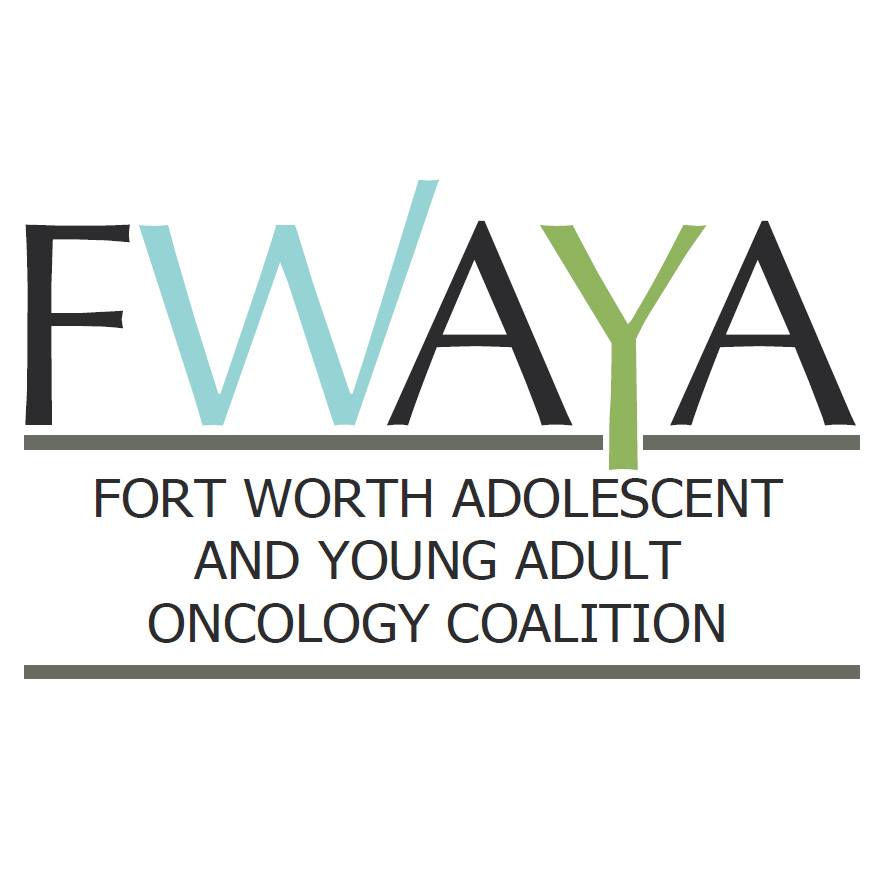I’M A PROVIDER
Become An AYA Cancer Network Provider
Make a Donation
“The hardest challenge for young adults diagnosed with cancer is finding where you fit in. For our age group, you feel like there aren’t those people who ‘get it.” Galen, 23, Rhabdomyosarcoma Survivor
AYA CANCER IS DIFFERENT
Adolescents and young adult cancer patients have unique challenges that children and older adults don’t have to face.
Developmentally, they’re caught between the pediatric and adult oncology worlds and don’t fit into either place.
They experience disadvantages in clinical trial participation, focused research, and improvements in survival.
Knowing the unique needs of AYAs, understanding how cancer impacts their lives, and advocating for more resources and research for young people can improve their care, and in many cases, save their lives.
The FWAYAOC is committed to enabling our healthcare community to provide the highest standard of adolescent and young adult care.
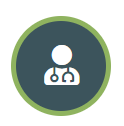
THE DIFFERENCES IN AYAS
Learn more about how young adult cancer is different from pediatric and older adult cancers
DO YOU HAVE AN AYA PATIENT?
We’re here to help. Choose one of the following resource sections or scroll down to learn how you can admit a young adult patient to our AYA oncology inpatient unit and outpatient center.
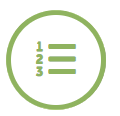
MEETING AYA NEEDS
Young adult patients have unique medical and psychosocial needs that, when not addressed, can impact outcomes and their quality of life.
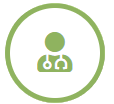
PROVIDER RESOURCES
From online resources to NCCN treatment guidelines for your patients, these resources will help address the needs of your AYA patient.

CLINICAL TRIALS
Less than 6% of AYAs enroll in cutting-edge clinical trials. Learn why and discover helpful clinical trial resources for you or your patient.
WE CAN HELP
Whether you have a question about our AYA inpatient unit, coalition resources or how to connect an AYA patient to community resources, we’ll quickly direct you to the help you need.
We can put you in touch with our AYA oncologist, Dr. Karen Albritton, AYA navigator, or the appropriate member of our coalition who can meet your needs.
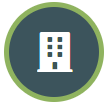
ADMIT TO OUR AYA UNIT
If you care for an AYA patient between the ages of 18 to 29, consider the specialized care and benefits the FWAYAOC unit offers

CONTACT US
Have a question? We can help. Call 855.OMG.AYAC (855.664.2922) or contact us at the link below email us

DISCOVER AYA NEWS
View the latest AYA research, local and national articles and the latest trends in the AYA oncology landscape
MEETING AYA NEEDS
More than 90,000 young people are diagnosed with cancer each year. Five hundred of those will be diagnosed in and around Tarrant County.
When considering a young patient’s acute and lifelong survivorship needs, that number can easily climb into the thousands.
Here are the most prominent medical and psychosocial issues facing this population:

MEDICAL ISSUES
+ Delays in diagnosis
+ Fertility preservation
+ Genetic predisposition
+ Choice of treatment site or specialist
+ Undetermined differences in tumor biology
and host pharmacodynamics
+ Lowest rates of clinical trial enrollment
+ Treatment adherence

PSYCHOSOCIAL ISSUES
> Maintaining “normalcy” and developmentally appropriate goals (school, career, appearance, intimate relationships)
> Shared decision-making/dependency on parents
> Substance abuse/risk-taking behavior
> Insurance and financial issues
> …and more

STOP A DOC
Education empowers you to provide patients with the best possible care options. The right answers to these questions can make all the difference in the care and survival rates of AYAs with cancer.
+ Can you answer yes to these questions?
- Do you know that there is an adolescent and young adult cancer segment called AYA?
- Are you aware of the unique physical, psychological, and social needs of AYAs?
- Do you know if there are clinical trials available for AYAs?
- Can you refer AYA patients to AYA specific resources?
- Do you treat AYA patients and, if so, do you have academic and clinical experience treating 15-39 year olds with cancer?
If you can answer yes to all of the above questions, download this flyer and proudly display it: I am a doc that can answer yes!
Test your own knowledge:
Take the AYA cancer quiz created by the National Cancer Institute
GET INVOLVED
Our coalition is making great strides toward improving the lives of young people diagnosed with cancer.
Together, we’re developing programs that offer comprehensive support, access to life-enhancing resources, and important AYA research.
One part of our mission is to elevate the standard of care for all AYAs in our community.
To do that, we need more medical professionals to learn, recognize, and educate others about the unique challenges that young adults face following a cancer diagnosis.
If you’re interested in AYA oncology or are ready to join a national movement to improve the lives and treatment outcomes of AYAs, then we’d like for you to consider joining our coalition.
No matter what your interest, there is a place for you.

JOIN OUR COALITION
AYAS & CLINICAL TRIALS
Only 2 to 6% of AYAs participate in cutting-edge clinical trials, the lowest percentage of any age group.
Although there are eight times fewer pediatric patients compared to AYAs, a much higher percent of children enroll in trials, and the Children Oncology Group (COG) and many disease-specific pediatric clinical trial groups successfully advance clinical science each year, resulting in a steady increase in survival rates.
Although a lower percentage of older adults enroll in clinical trials (when compared to AYAs), a much higher number of diagnoses means there are enough patients to successfully implement them.
There is a valid concern that the issue of poor enrollment contributes to the lack of improvement in survival for AYAs.
A key desire of our AYA program is to increase access to clinical trials for the young adult population.
WHAT CONTRIBUTES TO LOW ENROLLMENT?
- THERE ARE FEW TRIALS WRITTEN SPECIFICALLY FOR AYAS
- AYAS ARE TREATED IN MANY SETTINGS, MAKING IT DIFFICULT TO FILL A TRIAL
-
A MIX OF TUMOR TYPES
-
NO SINGLE COOPERATIVE GROUP FOCUSING ON THE DISEASES OF AYAS
-
ADULT AND PEDIATRIC INSTITUTIONS DON’T OPEN COG STUDIES BECAUSE IT’S *DIFFICULT AND EXPENSIVE
IF YOU HAVE AN AYA PATIENT AND WANT TO EXPLORE CLINICAL TRIAL OPTIONS:
Thanks for considering this important step in providing the best care for your patient. Here are a few options:
Look carefully when choosing the Cancer Type/Condition, there are sometimes “adult” or “child” qualifiers.
Ignore these, and search all possible categories, as there are trials with wide age ranges in both groups.
For types of cancer common in childhood (bone sarcoma, leukemia, rhabdomyosarcoma, etc), there are likely pediatric studies (Children Ocnology Group and others) open at Cook Children’s Medical Center. Texas Oncology, The Center for Cancer and Blood Disorders and JPS Health Network also have clinical trials open for many adult cancer types.
Call us at 855.OMG.AYAC to and we’ll help you explore local and national trial options.
Studies suggest that most AYAs are more than willing to participate in research if adequately explained. However, they haven’t had much exposure to the medical system and may think you are asking them to be a guinea pigs.
AYA CANCER NETWORK PROVIDER RESOURCES
Taking care of an AYA with cancer is not easy, especially when you’re used to caring for a different age group 90% of the time. Here are some resources to help.
NCCN guidelines for healthcare professionals: login registration required
Journal of Adolescent and Young Adult Oncology – JAYAO was the first cancer journal dedicated to all aspects of AYA cancer. It covers multidisciplinary issues specific to AYA oncology patients and survivors.
Resources, research, literature and peer reviewed reports and other information compiled by the National Cancer Institute (NCI)
ASCO Focus under Forty: Educational programs designed to shed light on the unique biology and care issues that are associated with patients with cancer in the 15 to 39-year-old age range.
The Oncofertility Consortium: A comprehensive fertility preservation resource regarding patients whose medical treatments present the risk of infertility.
Critical Mass: Formerly the Young Adult Cancer Alliance, Critical Mass is a national organization focused on improving the AYA cancer landscape through legislative advocacy.
Alpheus Media produced this short documentary about the young adult cancer experience with LIVESTRONG.
They traveled across the U.S. to connect with college students and young adults and explore how young people deal with the specific issues they face when diagnosed with cancer.
Missed: young adults with cancer, a great overview by Livestrong
The Nurse Oncology Education Program featured a six part educational series about AYA cancer.
Help close a nursing knowledge gap as you explore the unique physical, emotional, and practical needs of these patients. Each video highlights a different topic.
Adolescent and young adult cancer: Part 1 – Delayed diagnosis
Adolescent and young adult cancer: Part 2 – Access to care
Adolescent and young adult cancer: Part 3 – Lack of knowledge
Adolescent and young adult cancer, Part 4 – Emotional needs
Adolescent and young adult cancer: Part 5 – Practical needs
When a young person receives a cancer diagnosis, they look to health professionals for guidance.
These resources can help you answer their questions and offer guidance:
1. Connect Them To Our Website
Our ‘I’m an AYA section‘ section features age-relevant resources, information, young adult cancer stories and more.
Your patients will also discover ways to connect with other survivors their own age.
Our ‘AYA Resources‘ page has many community and national cancer resources relevant to teens and young adults.
2. Share NCCN Patient Guidelines With Your AYAs
3. Watch Moving Forward Videos
A series of videos on coping with challenges faced by young adults diagnosed with cancer, offering perspectives from both survivors and doctors, from ASCO and the LIVESTRONG Foundation.
4. Explore Critical Mass Mission Control
Mission Control is a database of AYA resources, programs and services.
All your patients have to do is type in a zip code to find the medical, psychosocial or financial help they need.
AYA NEWS & INFORMATION
The field of AYA oncology is emerging around the globe. We’ve gathered the latest coalition and national AYA news, research and information and put it in one location.
Give Today
Contact Us
Fax: 817-698-8471
